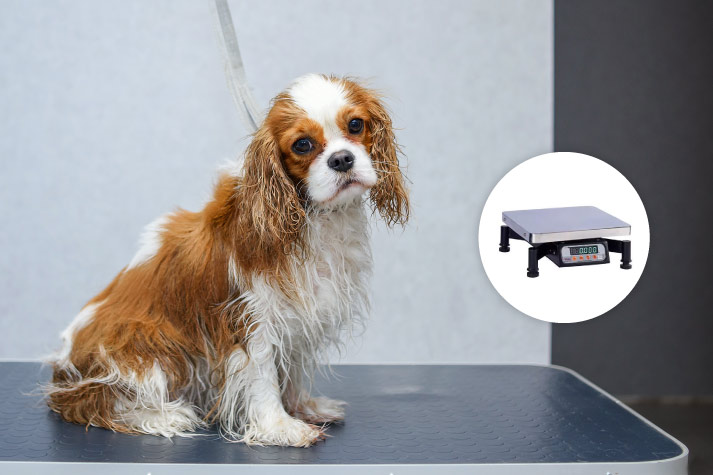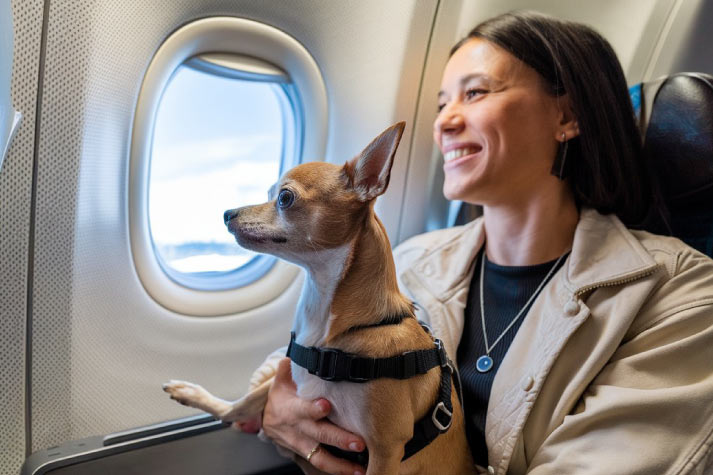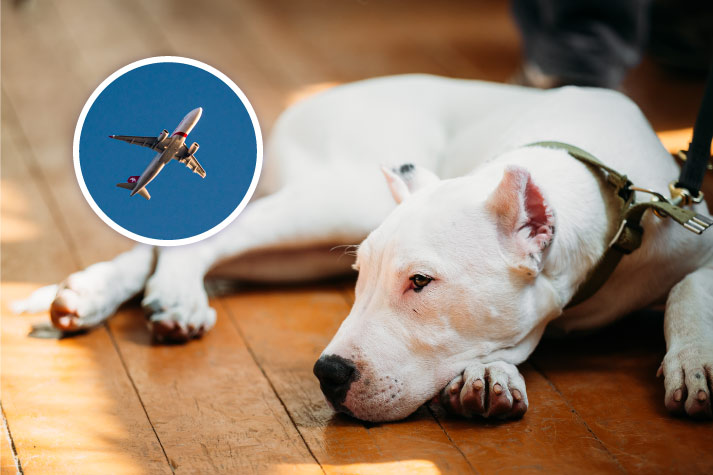
06 Sep
How to Help an Overweight Dog Lose Weight
While cute to behold, chubbiness or obesity in dogs can lead to severe health issues like heart disease, diabetes, and arthritis. Fortunately, if your dog needs to shed some pounds, there are various different steps you can take to help. While it may require time and effort, your dog will undoubtedly be healthier and more comfortable in the long run.
How to Help Your Dog Lose Weight
If your dog is overweight, your first step should be to consult your vet. With your vet’s guidance and a few adjustments to your dog's routine, you can be sure that your friend is on a path to better health. Here are some practical tips to get started:
- Feed Your Dog the Right Amount of Food - Most dog food packages provide feeding guidelines on the basis of weight. However, if your dog is gaining weight despite following these recommendations, try reducing the portion by 10% to 15%. Ensure that your dog receives the right amount of food each day. Measuring your dog’s food carefully and avoiding free-feeding can prevent obesity and unnatural weight gain.
- Reduce Treats - As hard as it may be, cutting out treats can significantly impact your dog's weight loss journey. Treats, especially store-bought treats, often contain extra added calories and sweeteners that can quickly add up the pounds. If treats are a must, consider switching to low-calorie options or home-made options and limit the quantity.
- Increase Daily Walk Time - Taking longer walks is a simple yet effective way to help your dog lose weight. Gradually increasing the duration and frequency of your walks will help burn more calories too. Adding extra playtime in the backyard or visiting the dog park on weekends can also help with activity levels and ensure your dog is healthy by giving both of you time to bond as well.
- Switch to a Low-Fat Diet - Switching to a low-fat, high-fiber dog food designed specifically for weight loss can contribute greatly to your dog’s weight loss routine. These foods help your dog feel full without the extra calories, making it easier to stick to a reduced-calorie diet. Always consult with your vet before changing your dog’s food type, diet, or routine.
- Use Puzzle Feeders - Interactive or puzzle feeder bowls are a fun way to slow down your dog’s eating. By making mealtime more challenging with a small puzzle, your dog will eat slowly, which can help them feel fuller for longer, aid in digestion, and prevent overeating.
- Incorporate More Exercise into Daily Life - Beyond walking, find creative ways to keep your dog active. Spend 10 to 15 minutes twice a day playing fetch, chase, a game of hide and seek, or setting up a small obstacle course in your yard. Rotating different activities can keep your dog entertained and excited about exercising.
- Offer Non-Food Rewards - Instead of rewarding your dog with treats or table scraps, offer non-food rewards such as extra praise, belly rubs, or cuddle time. Positive reinforcement with attention and affection can be just as rewarding to your dog as a tasty snack.
- Consult Your Vet Regularly - If you’re concerned about your dog’s weight, schedule a visit with your vet. Your vet can assess your dog’s overall health, identify any underlying causes of obesity, and develop a tailored weight loss plan. It’s important to approach weight loss gradually, aiming for 1% to 5% of body weight loss each month to avoid health complications.
Common Causes of Dog Obesity
Several factors can contribute to canine obesity, including age, breed, genetics, and sex. However, the most common causes are often linked to lifestyle:
- Overfeeding: Many dog owners allow free-feeding, where food is left out all day. This can lead to excessive calorie intake. Instead, measure your dog’s food and feed them at specific times.
- Excessive Treats: Treats add extra calories that can cause weight gain if given too frequently. Opt for low-calorie treats and avoid overindulging your dog.
- Underlying Health Conditions: Certain conditions like hypothyroidism, can make it difficult for dogs to maintain a healthy weight. Consult your vet if you suspect your dog’s weight gain may be related to an underlying health issue.
- Lack of Exercise: A stationary lifestyle can quickly lead to weight gain when coupled with large meals. Regular physical activity is essential for maintaining a healthy weight. Aim for at least one daily walk or play session to keep your dog active throughout the day.
Health Risks Associated with Dog Obesity
Overweight dogs are at a higher risk of developing a range of health issues, including:
- Heart disease
- High blood pressure
- Kidney disease
- Diabetes
- Skin infections
- Arthritis
- Breathing difficulties
Preventing Dog Obesity
Much like many health-related ailments, obesity is far easier to prevent than it is to cure. You can help keep your dog at a healthy weight in a few ways:
- Ensuring they get plenty of exercise daily
- Feeding a balanced diet with appropriate portions
- Adjusting food intake and cutting out treats if they start gaining weight
- Scheduling regular check-ups with your vet and monitoring any changes in weight or health
By being proactive and mindful of your dog’s diet, lifestyle, and activity levels, you can help them live a longer, healthier, and more comfortable life.






AUTHOR’S BIO
Carry My Pet
Passionate pet enthusiasts and globetrotters, dedicated to easing furry friends' journeys worldwide. Penning tales of compassion at CarryMyPet, where every relocation is a tail-wagging adventure.